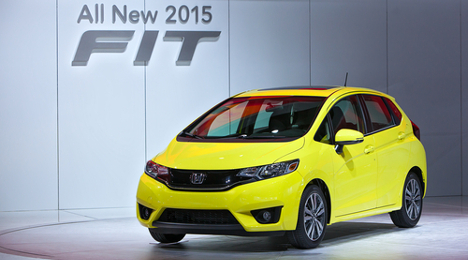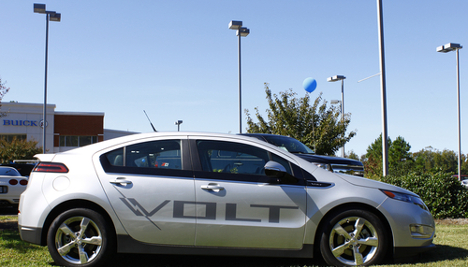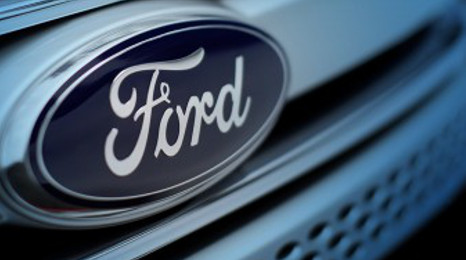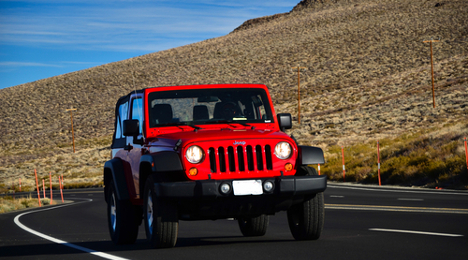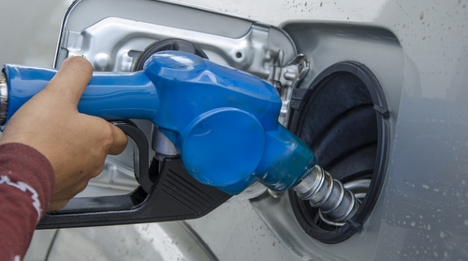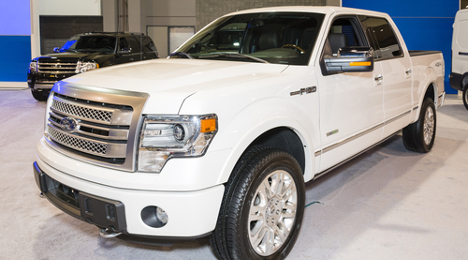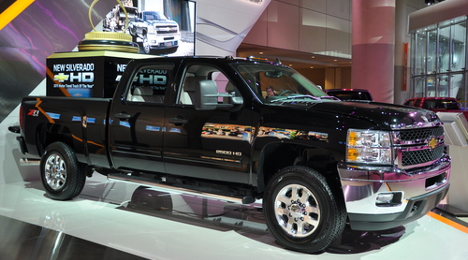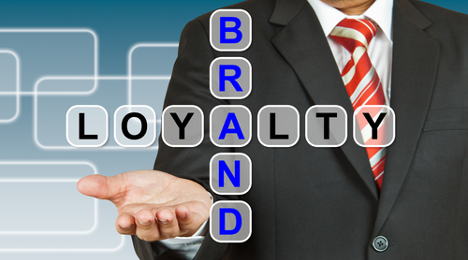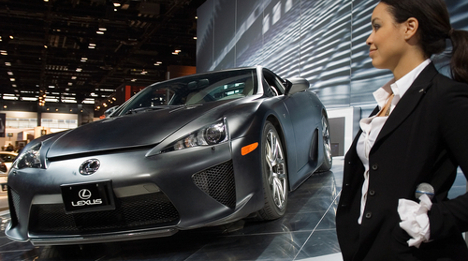The U.S. News & World Report announced Wednesday its annual “2015 Best Cars for the Money” award winners, listing the popular consumer-facing publisher’s advice on the “best” vehicles in each vehicle category.
The manufacturer with the most winners was the American Honda Motor Company, featuring three winners from each of its Honda and Acura brands.
“In recent years, Honda has focused on providing more standard features in its Honda products and sportier performance for Acura models,” said Page Deaton, managing editor of U.S. News Best Cars. “That focus has resulted in more praise from professional car critics. Consumers now have more reasons beyond value to buy a Honda or Acura.”
A glance at the following import-dominated list of 21 vehicles may prove useful for dealers, outlining the type of vehicles that are being marketed to consumers by third-party sources as deserving their attention and their money. The following list of 2015 models was provided by the U.S. News & World Report.
2015 Best Cars for the Money
Subcompact Cars – Honda Fit
Compact Cars – Volkswagen Golf
Hatchbacks – Honda Fit
Sports Cars – Volkswagen GTI
Upscale Small Cars – Audi A3
Midsize Cars – Hyundai Sonata
Upscale Midsize Cars – Acura TLX
Hybrid Cars – Toyota Camry Hybrid
Large Cars – Chevrolet Impala
Wagons – Subaru Outback
Compact SUVs – Honda CR-V
2-Row Midsize SUVs – Nissan Murano
3-Row Midsize SUVs – Hyundai Santa Fe
Hybrid SUVs – Toyota Highlander Hybrid
Luxury Compact SUVs – Acura RDX
Luxury 2-Row Midsize SUVs – Lexus RX 350
Large SUVs – Mazda CX-9
Minivans – Mazda Mazda5
Compact Pickup Trucks – Chevrolet Colorado
Full Size Pickup Trucks – Ram 1500
“With new cars selling at record prices, shopping for a car that meets both your budget and lifestyle is an overwhelming process,” Deaton said. “The 2015 Best Cars for the Money awards help car shoppers quickly identify the models that are great values and a pleasure to own.”
For a complete list of winners and finalists, visit the U.S. News website.
With all this focus on marketing to millennials, what about some of your older customers — perhaps the ones that have hit that proverbial bump in the road known as the “midlife crisis”?
CarMax research shows these customers may not be on the lookout for the stereotypical red convertible that goes along with passing the 50-year mark.
CarMax Inc. published a survey on midlife crisis car trends on Tuesday that instead shows sedans and SUVs are gaining in popularity for this particular set of the public.
According to the survey, 20 percent of “midlife crisis buyers” would still go for a sports car first, but less flashy models are gaining steam. Seventeen percent of responders said they would purchase an SUV, and 15 percent would go for a sedan.
The importance of the so-called midlife crisis car seems to vary with gender, though. First off, 30 percent of men would be very or somewhat likely to buy a car associated with a midlife crisis, while 21 percent of women said the same.
And for men, 24 percent would still be in the market for a sports car at this point in their lives, while women's top choice (19 percent) are SUVs.
Not surprisingly, though, when asked about a specific make and model, the Ford Mustang and Chevrolet Corvette still reign as the overall go-to vehicles for those trying to refresh their image.
But the color preference may be changing, as CarMax points out no matter what 1980s movies may have shown us, “today’s midlife crisis car doesn’t have to be red.”
In fact, according to the survey, fielded by Ipsos with a sample of 1,005 adults, the most popular color for respondents’ hypothetical midlife crisis car was black (20 percent).
Silvery/gray was up next with 19 percent of the vote, followed by blue and red, both with 17-percent shares. Yellow wrapped up the list with just 2 percent.
Interestingly, the survey even shows which area of the U.S. has the most consumers potentially in the market for their “midlife crisis ride.”
According to the survey, residents of the South are most likely to go that route, with more than 30 percent of respondents indicating that they were very or somewhat likely to buy a vehicle to mark a midlife crisis.
Midwesterners were the least likely to spring for a midlife crisis car overall, according to CarMax, with almost 80 percent of respondents saying that they were not very likely or not at all likely to buy one.
For more information, visit: https://www.carmax.com/research/articles/are-you-in-the-market-for-a-midlife-crisis-car.
Even with today's low gas prices, consumers are still often playing it safe with more fuel-efficient rides.
Swapalease.com illustrated this assertion by analyzing four of today’s most popular fuel-efficient models against four of the current most popular large trucks/SUVs.
Looking at search consideration data from 2013 versus 2014, when gas prices plunged over the course of the year, the stats from the leasing site showed small cars remained in “healthy demand,” but others weren’t so lucky.
For example, the Toyota Corolla enjoyed a 13.8-percent rise in interest from 2013 to 2014, while the Prius saw searches wane by 3.7 percent.
The site drew the same conclusion for larger trucks and SUVs. The popular Chevrolet Tahoe saw a whopping 52.5-percent increase in interest this past year, but the Ford Expedition took a 35.4-percent hit to its search stats in 2014.
“The fact that we’re seeing an inconsistent pattern into the beginning of 2015 tells us that gas prices aren’t having an across-the-board adverse effect on smaller cars and EV/hybrid vehicle demand,” said Scot Hall, executive vice president of Swapalease.com. "Similarly, it also tells us that truck shoppers may not be flocking to every model just because gas prices are extremely low in many places today."
Interestingly, the Chevrolet Tahoe’s over 50-percent increase was the largest spike on the site last year, but the second-largest increase was the Volt, which saw interest rise by 50.8 percent.
Though fuel prices may not be having much impact on shopper trends, it is beginning to alter the environment in the auction lanes.
Truck values are rising, and the larger segments dominated recent positive price adjustment activity, as half of them increased in value compared to less than a quarter (23 percent) of cars last week, according to Black Book data.
When shoppers get sick of their old vehicles, will they stay loyal to a tried and true ride, or will it be time to give another brand a shot?
A new Experian automotive study highlighted in a recent blog post focused on just that: the loyalty behavior of shoppers who got rid of their previous vehicle to purchase a new one.
According to the study, brand customer retention is strongest among Ford owners, with 60.8 percent purchasing another Ford vehicle the second time around.
Next up was Toyota, with 59.1 percent of consumers sticking with the brand.
Rounding out the top five brands for customer loyalty were Subaru (57.7 percent), Kia (57.2 percent) and Lexus (55.9 percent).
“Vehicle loyalty is an important industry metric because it tells automakers how successful their vehicles are with the general public,” said Brad Smith, director of automotive market statistics for Experian Automotive. “When analyzing loyalty, Experian Automotive uses disposal methodology, meaning we track when a consumer replaces a vehicle that he or she originally purchased new with another new vehicle.
“This approach creates a more direct correlation between a purchased and owned vehicle to provide automakers and dealers with insights that can become actionable with regard to production volumes, design changes or sales incentives,” he continued.
The study also took a look at shoppers who remained loyal to a particular model within a variety of popular vehicle segments, such as full-sized pickups and small economy cars.
Not surprisingly, loyal Ford shoppers stuck with the Ford F-150 a large percentage of the time for their next vehicle purchase (45 percent).
Honda CR-V owners were also apparently happy with their experience with the model the first time around; 41.6 percent of the time, buyers stuck with the model when choosing a new vehicle.
Another model that inspires loyalty is from the No. 2 brand for the study. Toyota Corolla customers were loyal to the model 30.4 percent of the time.
On the other hand, the lowest model loyalty of the segments and popular vehicles studied was seen in the small economy car segment.
For the Ford Focus, customers only considered the vehicle for their next car purchase 21.6 percent of the time.
CarGurus recently released the list of the used vehicles that were the most popular with shoppers on its website.
The top 10 list, based on the number of unique shoppers inquiring to dealer and private seller listings, ranked the results by models that had been searched for between Jan. 1, 2014 and the end of the year. As a point of reference, CarGurus’ website receives more than 11 million unique shoppers per month.
Performance vehicles manufactured by the Big 3 comprised 6 out of the 10 spots, including all of the top 5. Without further ado, here is the list provided by CarGurus:
- Jeep Wrangler
- Ford F-150
- Chevrolet Silverado
- Chevrolet Camaro
- Dodge Charger
- Toyota Camry
- Ford Mustang
- Honda Accord
- BMW 3 Series
- Nissan Altima
“This year, our Top 10 list includes a bunch of lively, legendary models, from the Jeep Wrangler to the Ford Mustang, in addition to predictable top sellers,” said Steve Halloran, CarGurus.com’s editor. “It’s clear that CarGurus shoppers want not only great deals, but also great rides.”
With oil and gas prices falling, may shoppers are turning back toward units that may not be quite as fuel-efficient, but diesel fuel remains pricey.
Still, gas prices aside, some diesel vehicles — especially luxury units — are more cost-effective than their gasoline counterparts, according to a report from Vincentric.
In its most recent Diesel Analysis, the company found that 11 out of the 35 diesel vehicles analyzed (or, 31 percent) had a lower total cost-of-ownership than their closest all-gasoline powered counterparts. Vincentric made this assertion after measuring total cost-of-ownership using eight different cost factors: depreciation, fees and taxes, financing, fuel, insurance, maintenance, opportunity cost and repairs.
The analysis assumed vehicle ownership of five years and 15,000 annual miles of driving.
Though the results may still be surprising, the number is down from 46 of the diesel vehicles measures as cost-effective in November of 2013.
“We’ve observed gasoline prices falling more rapidly than diesel prices over the past several months, reducing the fuel economy advantages inherent in many diesel vehicles,” stated Vincentric president David Wurster. “In spite of this, nearly a third of the diesels analyzed showed cost-of-ownership savings, signaling to consumers that cost savings are specific to certain models.”
Of the 11 that turned out to be especially cost-effective, 10 were luxury models; four from Mercedes-Benz and three each from BMW and Audi. And with 12 luxury diesel vehicles included in the entire study, 83 percent were cost-effective, Vincentric analysts explained.
For example, those who bought the 2014 Mercedes-Benz GL350 will save $7,789 on ownership costs, while those that bought the 2014 BMW X5 Diesel would save an estimated $2,358.
Mainstream brands didn’t fair quite as well, as Chrysler’s Ram ProMaster Diesel was the only non-luxury vehicle to have lower ownership costs than its all-gas counterpart.
According to the study, buyers were shelling out an average price premium of $5,390 for a diesel vehicle this year, with average fuel savings of $855.
The study also indicated that the 2014 Mercedes-Benz GL350 BlueTEC would save diesel owners the most on fuel, with $4,060 in savings.
And though it seems luxury buyers may want to consider diesel units for their next purchase, the overall results still show diesel vehicles may be a bit more pricy for consumers down the road.
For all 35 vehicles studied, the average cost-of-ownership was $2,754 more for a diesel vehicle compared to its all-gas counterpart. This is up $1,737 from the previous study.
Cars.com released some interesting data Friday revealing the most-searched-for new vehicles on its website. Unsurprisingly, the overwhelming champion, on a state-by-state basis for the third quarter of 2014, is the Ford F-150. The truck was the most-searched vehicle in 30 of the 50 United States.
Around the coastlines and major metropolitan areas, another Ford stands out — the states of New York, Florida and California were just a few of the 10 states where the Mustang led the races, along with being the most-searched vehicles in several of those states major cities, including Seattle, Miami, Philadelphia and Los Angeles, among others.
According to Cars.com, approximately 11 percent of the nation’s population is in the market to purchase a vehicle at any time.
“Just like every car shopper is different, every city and state has its own unique new-car market,” said Kelsey Mays, Cars.com’s consumer affairs editor. “A resurgent economy and lower fuel prices have propelled light truck sales across the board, hence the popularity of the F-150. But in warmer, less industrial and cosmopolitan areas, shoppers still naturally gravitate toward vehicles that best fit their day-to-day lives.”
The next most-searched vehicle was the Jeep Grand Cherokee, finding its popularity in the colder climates of Illinois, Michigan and the New England neighbors of Connecticut, Rhode Island and Massachusetts. The Grand Cherokee was also the most-searched vehicle in New York City.
The remaining five states were represented by four vehicles, with the Honda Accord in Maryland, the Chevrolet Silverado in Arkansas, the Toyota Camry in Virginia, and the Toyota Tacoma in Vermont and, perhaps surprisingly, Hawaii. The Camry also reigned supreme in our nation’s capital.
The Costco Auto Program announced early this week the top brands requested in the month of October by Costco members.
So who came in at No. 1 last month?
Costco said that General Motors’ brands overtook both Toyota and Honda, following the commencement of the Costco GM Holiday Sales Event, which started Oct. 1 and runs through Jan. 2. This promoties a special offer available for 17 select 2014 and 2015 models at GM Supplier Pricing and additional benefits, including all qualifying manufacturer rebates and incentives, and either a $600 Costco Cash Card for Executive Members or a $400 Costco Cash Card for Gold Star and Business Members, for completing certain eligibility requirements.
“Taking the No. 1 spot as the most-requested brand by Costco members confirms that we made the right decision in partnering with the Costco Auto Program to offer the Costco GM Holiday Sales Event,” said James Bell, GM’s head of consumer affairs. “Together, we were able to collaborate on a unique savings opportunity, featuring a diverse vehicle selection, GM Supplier Pricing and a Costco Cash Card offer that members find valuable during the holiday season. We’re excited to be a part of it.”
The promotion saw a 33-percent increase over the same first 30 days last year, bringing in over 17,000 Costco members registered for the event. The four largest increases in average daily requests, according to the program, were for trucks, SUVs and luxury models, with the Chevy Silverado, GMC Sierra and GMC Acadia rounding out the top three most-requested vehicles. The following three top most-requested vehicles for the month were also GM products.
A recent analysis released by Experian Automotive this week shines some light on the relationship between a consumer’s length of ownership of a vehicle and their likelihood of repurchasing their next vehicle from the same brand, otherwise known as brand loyalty.
The relationship may surprise you.
According to Experian’s data, the longer consumers hold onto their vehicles, the less likely they are to remain loyal to the brand. In fact, it appears as though the most significant drop in brand loyalty occurs after 36 months, according to the study, making leases ideal for brands to hold onto their drivers.
“Leases with their fixed length ownership cycle are typically strong contributors to brand loyalty,” said Brad Smith, Experian Automotive’s director of automotive market statistics.
Over the course of seven years of ownership, a lot of things change, including vehicle product offerings, vehicle budget and credit score," Smith continued. "Additionally, the increase in time between dealer interactions, whether they are for sales or service, increases the probability of a customer defecting to the competition.”
As of the first quarter of 2014, the average length of ownership was 93 months — 7.75 years — with an average brand-loyalty rate of 49.5 percent. Consumers who owned a vehicle for 12 months ended up purchasing from the same brand family 57.3 percent of the time, while that rate dropped to 33.8 percent for people who owned their vehicle for 144 months, or 12 years.
The most significant drop – after 36 months, decreased brand loyalty by nearly 10 percentage points.
“Understanding how long consumers hang onto vehicles, or how often they return to market and purchase the same brand, are critical pieces of information for automotive dealers, retailers and manufacturers,” Smith said.
“On the one hand, increased ownership lengths create greater opportunity for dealer and aftermarket service organizations," he continued. "On the other hand, it underscores the importance for service centers to focus on customer service and retention.
"Dealers and manufacturers should continue to emphasize on keeping customers loyal to the service drive and using these customer interactions to highlight their new and soon to be released product offerings, as these efforts will aid in increasing service revenue and repurchase loyalty," Smith went on to say.
So which manufacturers lead the way in length of ownership and brand loyalty?
Dodge, Buick, Chevrolet, Ford and Mitsubishi, respectively, were the top five brands for length of ownership, ranging from 113 months of ownership for Dodge and Buick to 109 months for Mitsubishi.
On the other end of the spectrum, Ford, Subaru, Toyota, Kia and Lexus showed the highest rates of brand loyalty, respectively, ranging from 61 percent with Ford to 55.8 percent with Lexus. Ford, with 110 months for their average length of ownership, was the only brand to break into the top five in both categories.
Other important findings, provided by Experian Automotive:
- In Q1 2014, the average length of ownership increased by three months from Q1 2012
- Brand loyalty in the first quarter of 2014 improved by 3.9 percent from two years ago
- Acura and Volvo led the luxury-vehicle segment with the longest length of ownership in Q1 2014 at 99 months and 92 months, respectively
- Lexus and Mercedes-Benz led the luxury-vehicle segment with the highest brand loyalty in Q1 2012 at 55.8 percent and 52.7 percent, respectively
DealerRater announced the results of its mid-year update to the 2015 DealerRater Consumer Rating Index (CRI) for Auto Manufacturers.
At the head of their respective markets, Lexus ranked highest in customer experience in the luxury segment while Hyundai took the top spot in the mass market. Japanese manufacturers Honda and Subaru rounded out the top three for the mass market, while German-based Mercedes-Benz and Audi took the No. 2 and 3 spots in the luxury market.
DealerRater’s CRI is based on nearly 352,000 verified reviews gathered during a 12-month period starting in September 2013. Based on a five-point score, the rankings are based on numerical averages of all reviews that are attributed to the specific OEMs.
“Overall, CRI scores have increased since we introduced the index this past spring, which means dealers are working to improve the shopping experience for their customers,” Gary Tucker, DealerRater’s chief executive officer, said. “Our main goal in collecting consumer reviews and sharing these ratings is to help build trust between dealerships and car shoppers, so the fact that manufacturers and their dealers are listening to their customers’ feedback is very encouraging.
“Providing an exceptional buying experience is the key first step for dealers to forge long-lasting relationships with their customers.”
Below are the top five in each category of DealerRater’s current CRI. For a complete list, click here.
DealerRater’s Consumer Rating Index October 2014 (Luxury)
- Lexus, Score: 4.808/5
- Mercedes-Benz, 4.770
- Audi, 4.769
- Porsche, 4.760
- Acura, 4.750
DealerRater’s Consumer Rating Index October 2014 (Mass Market)
- Hyundai, Score: 4.762/5
- Honda, 4.744
- Subaru, 4.743
- Kia, 4.727
- Ford, 4.726

